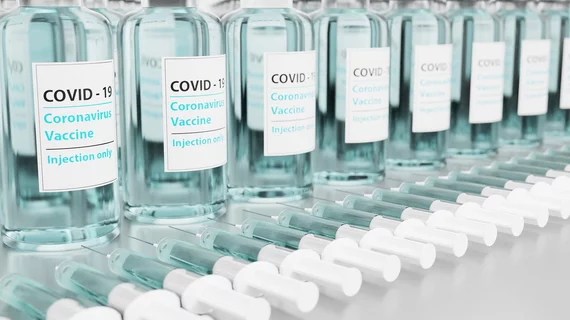Pfizer CEO says fourth COVID-19 shot is necessary
A second vaccine booster shot may be necessary to protect against COVID-19.
That’s according to the head of Pfizer, which is one of three COVID-19 vaccine providers in the U.S. Pfizer’s vaccine shot requires two doses to be considered fully vaccinated against the virus, while patients are also recommended to receive a booster dose. Now, a second booster dose is recommended.
That is because the vaccine’s effectiveness tends to wear off over time. In addition, new variants of the virus continue to pop up. In addition, Pfizer is working to develop a vaccine that will protect against all COVID-19 variants for a year.
“Many variants are coming,” Pfizer CEO Albert Bourla said during an interview with CBS. “And omicron was the first one that was able to evade in a skillful way the immune protection that we were giving. But also, in all that the duration of the protection, it doesn't last very long. So, what we are trying to do, and we are working very diligently, right now is to make not only a vaccine that will protect against all variants, including omicron, but also something that can protect for at least a year.”
Booster shots are recommended for patients five months after they receive their second vaccine dose or two months after receiving the one-shot Johnson & Johnson vaccine. Pfizer’s COVID-19 vaccine shot was fully approved by the FDA for those 16 and older in August 2021. A third dose was approved under emergency use authorization.
Pfizer intends to submit data for approval of a fourth dose soon.
“The protection that we are getting from the third, it is good enough –– actually, quite good for hospitalizations and deaths,” Bourla said. “It's not that good against infections, but it doesn't last very long. But we are just submitting those data to the FDA and then we're seeing what the experts also will say outside Pfizer.”

